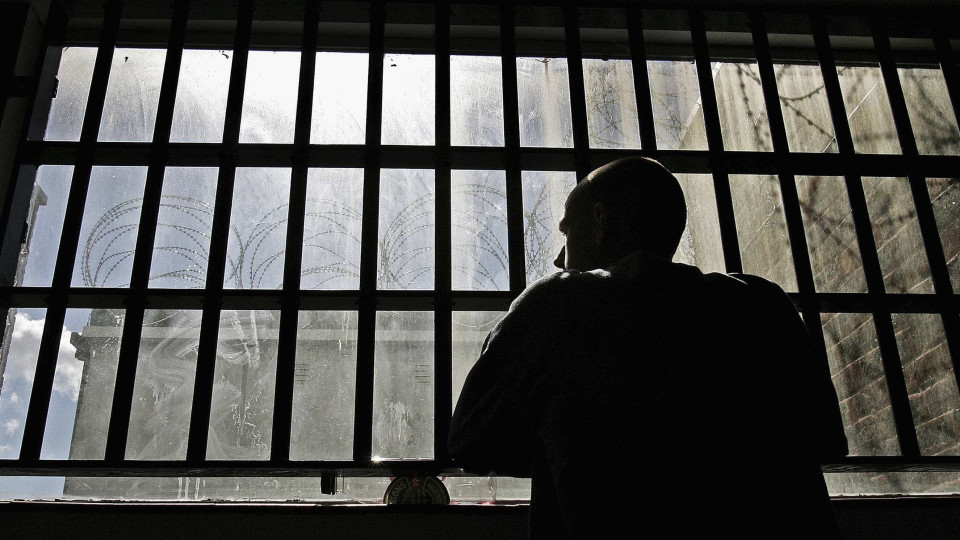Cáritas launches Espaço Humanus to support inmates in Vila Real
The Humanus Space, a project by the Diocesan Caritas of Vila Real, opens every week for the inmates of the local prison to carry out manual work and receive psychosocial support, promoting social reintegration.

© Getty Images

País Cáritas
The meeting takes place once a week in that prison, but today was a special day. There was a Eucharist presided over by the bishop of Vila Real, António Azevedo, which was attended by inmates and a group of visitors from the Prison Justice Community of Practice (CdP) of Caritas Europa. Albertino, 42, was one of the inmates who participated in the choir that sang at this religious celebration. "We prepared for three weeks," he told Lusa news agency. In preventive detention for 20 months and awaiting the outcome of the trial in a drug trafficking case, he found a breath of fresh air in the Espaço Humanus. "At first, I stayed in my cell a lot, I isolated myself a lot, and it was an initiative that lifted my spirits," he said. There, he said, they talk about employability and do manual work, giving as an example the crosses made in the workshop and offered to visitors. Artur is 36 years old, has been in prison for a year and a half, also because of a drug case, and said that the Caritas employees help him feel "really good". "My time here has become less heavy because of their presence," he said. Inside the Space, they talk about resumes, about communication, what behaviour to adopt or what clothes to wear when looking for a job, they work on the ability to find a job, but also to keep it and learn to manage emotions. It is a project that aims to reintegrate people with problems related to alcohol or drug use. Since 2016, Dália Carriço has been working there on employability skills and Mónica Cruz has been running a workshop where manual work or games are done. "We always offer a space of freedom where they can also bring their concerns, anxieties, their anguish and, often, their revolts (...) We are here with the primary objective, which in my opinion must be the basis of all reintegration, which is to humanize," she said. Talents are also discovered and we look beyond the bars, providing useful tools that can be used outside. "In this workshop, we give each person space to explore their talents. We bring a little bit of humanism and dignity to the person, regardless of their background," said Mónica Cruz. The project is from Caritas, an institution linked to the Catholic Church, but it is open to everyone and support can extend beyond the prison gates. The group of visitors toured the spaces of the establishment, including cells, outdoor recreation, library, dining room and gym, and attended the Eucharist. "For those who are here, it is a moment to feel that they are also part of the church, that they are not forgotten, and, on the other hand, for us to feel that their situation cannot be indifferent to us. We have the mission to accompany, to help, especially because these are difficult situations, but which allow the person to rethink their future and this process has to be accompanied," said Bishop António Azevedo at the end. The Prison Justice CdP of Caritas Europa is holding its annual meeting in Vila Real from Wednesday to Friday, precisely to get to know the Espaço Humanus and the prison establishment. "This project is important because of the proximity and openness of the prison in receiving us and the follow-up that is done with the inmates," said Henrique Oliveira, from the Diocesan Caritas of Vila Real, who stressed that "being a prisoner is not an identity", but a "moment in their journey". The official also said that the European colleagues were amazed by the way the management of the establishment opened the doors to visitors, which he said does not happen in other countries. Representatives from Caritas of France, Germany, Spain, Moldova, Lithuania, Portugal and Belgium are present at this meeting. The CdP promotes knowledge about the rights and living conditions of people deprived of their liberty and wants to contribute to the development of policies aimed at better protecting the dignity of detainees, their social rights during and after imprisonment and their reintegration into society. Also Read: Caritas proposes a social housing plan for young people and the disadvantaged (Portuguese version)


Descarregue a nossa App gratuita.
Oitavo ano consecutivo Escolha do Consumidor para Imprensa Online e eleito o produto do ano 2024.
* Estudo da e Netsonda, nov. e dez. 2023 produtodoano- pt.com



